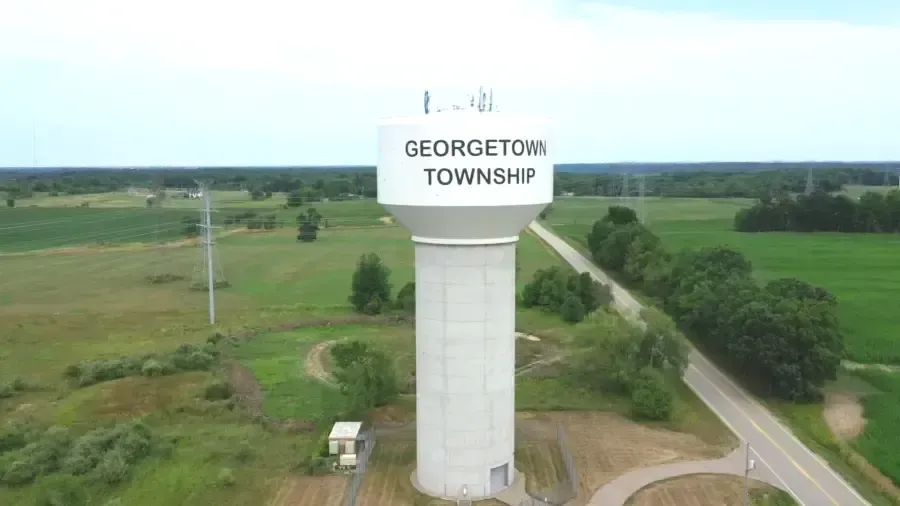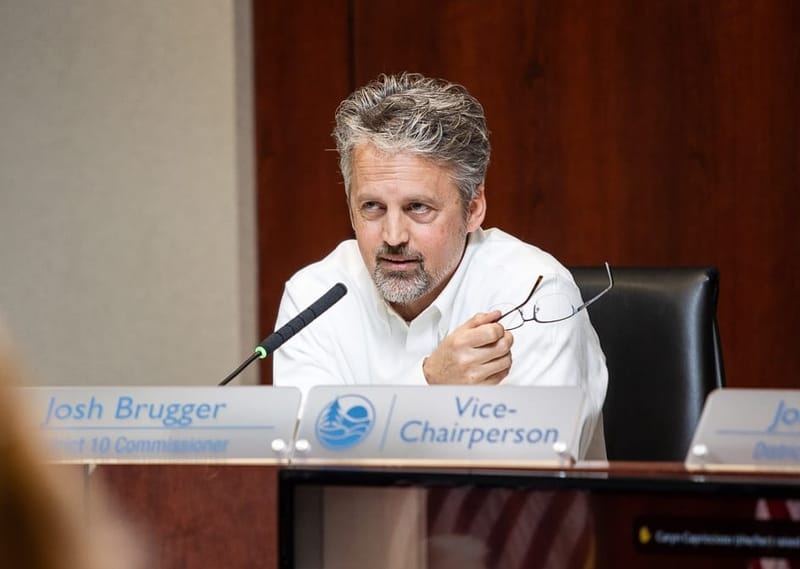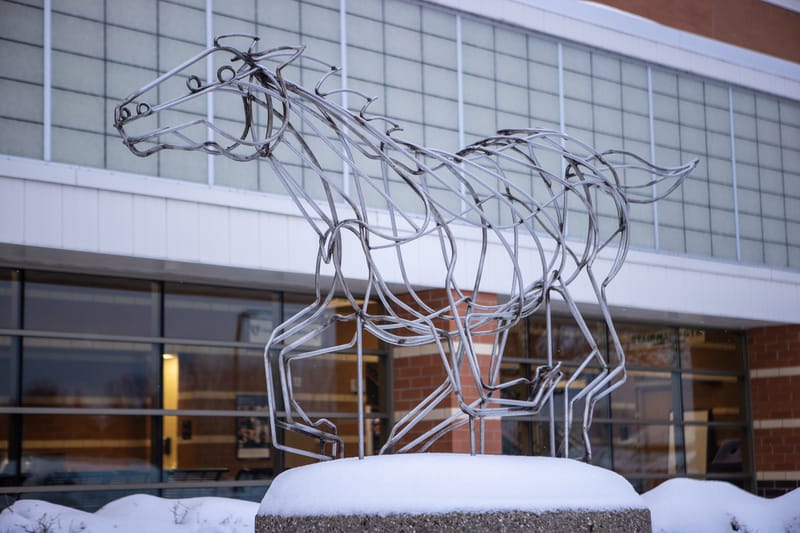Rate hike catches Georgetown residents off guard as costs weigh on water systems
Township officials are hoping that explaining a dire need for water plant improvements will help mitigate complaints from residents angry over sudden hikes in their water bills.
GEORGETOWN TWP. — Katrina Brummel wasn't worried about her water and sewer bill for her business, Luna Aesthetics, until she got a call from a client.
They had to push an appointment back so they could afford a surprise $1,000 bill. Then she checked the bill for Luna, which she and her husband, Kurt, have been building on Baldwin Street in Georgetown Township. It was for over $800 — nearly 10 times the amount of their last bill.
"At home, we are not shy with water," Brummel said. "I garden a lot."
Their home in Grandville sits on a similarly sized lot, about half an acre. There, the family of three uses laundry and dishwashing machines, take daily showers, and maintains healthy landscaping with new in-ground sprinkling they installed this year. Their summer usage came to 36,000 gallons of water, or 36 units.
"Just over $200," Brummel said. "Still the highest one we had ever gotten, but totally doable."
On the other hand, their business has barely any lawn, only a strip of grass near the sidewalk. They have a few dozen plants and shrubs near the entrance being watered with soaker hoses on a timer. They've been doing renovations and have installed a new, high-efficiency toilet. The aesthetics business focuses mostly on injectables and laser procedures that don't really use water because the supplies are disposable.
"It's just washing my hands while going to the bathroom," Brummel said.
And yet, the business’s most recent bill said it used 75,000 gallons of water.
"Things just don't add up," Kurt Brummel said.
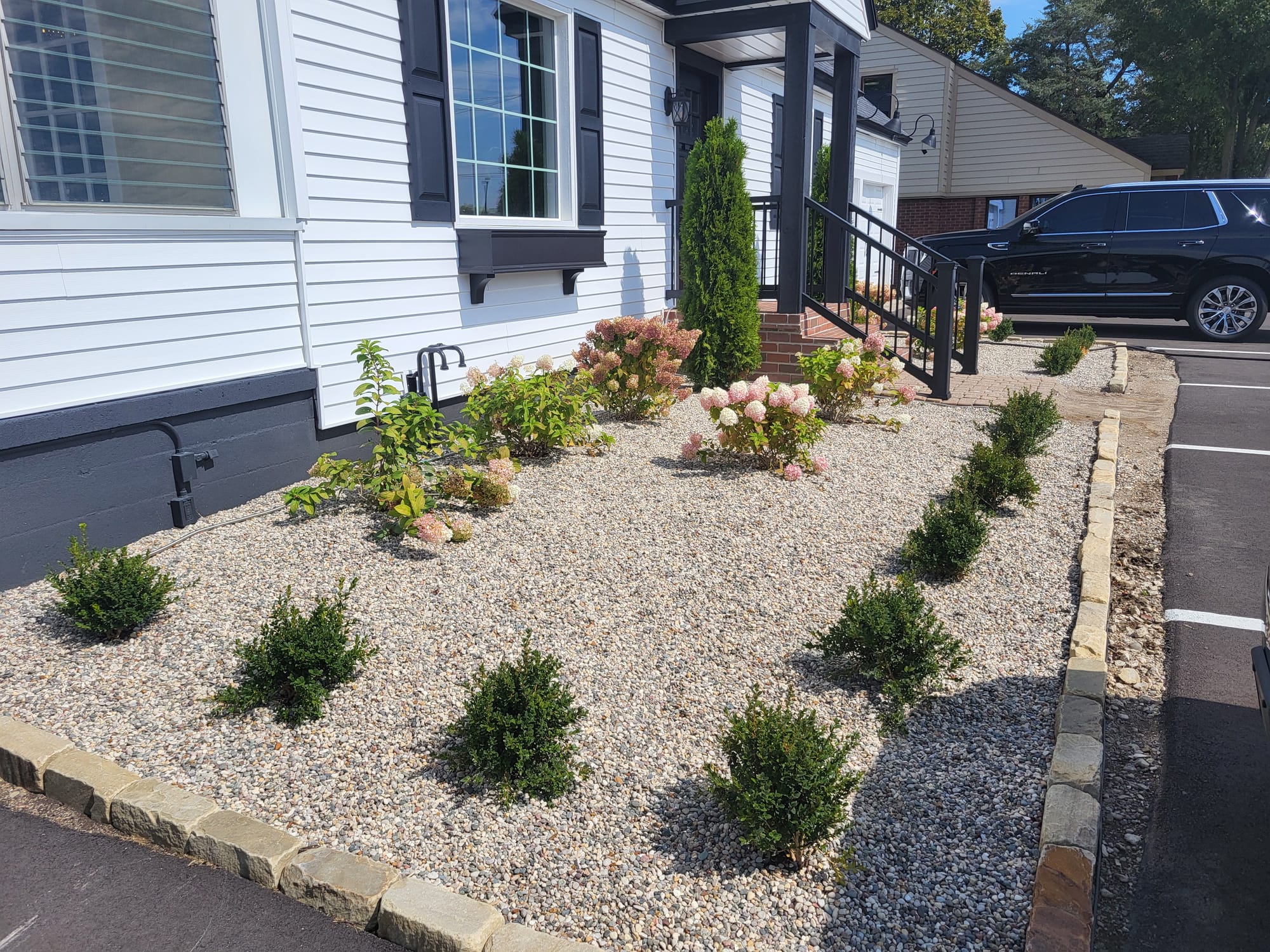
So they did some investigating. They checked the meter by turning off everything in the business, marking where the gauge on the meter was, and waiting to see if it moved. It didn't, so they ruled out a leak. They flushed their low-flow toilet and the meter read about 1.6 gallons used, which was what they expected. They calculated the water use of their irrigation system and still felt the water usage billed was far too high.
Then, the Brummels went to the township and got detailed, by-the-hour readings from the digital meter, which was installed in 2024. They found that the meter seemed to be running at times when their irrigation timers aren't on, and the business is closed.
"Even on weekends when I know we were up at the cabin, stuff like that," Katrina Brummel said.
Sometimes when the irrigation was running, the meter was logging as much as 500 gallons in an hour.
"It sounds pretty fluffed to me," Katrina said.
Township officials, however, assured them the meter was accurate. They were also told that because the meter couldn't be read for a couple of billing periods before, they had been issued estimated bills. Much of the current bill could be for gallons that were found to be used when the township got an actual read this summer — after the township installed a new meter.
The Brummels say they can afford the bill, but they worry about nearby businesses with smaller profit margins and people on fixed incomes.
"There's people living paycheck to paycheck," Kurt Brummel said. "They can't afford that."
Urged by one of her clients, the Brummels took their daughter to the Sept. 9 Georgetown Township Board of Trustees meeting to voice their concern. When they got there, they couldn't find a seat, as dozens of residents filled the room, drawn there with similar concerns.
Bart Polich sat in the front row of the township board meeting last week. After having his meter changed out in July, he was shocked to receive a bill four times that of the previous one, even though he keeps his water use to a minimum.
"I just don't understand how this could have possibly happened," Polich said.
He talked to his neighbors, many also on fixed incomes, and found that some of them had bills far higher than his.
When Polich addressed the board during public comment, he highlighted the poor timing of the rate increase, coming at the end of summer, when bills are highest and parents are making back-to-school expenditures.
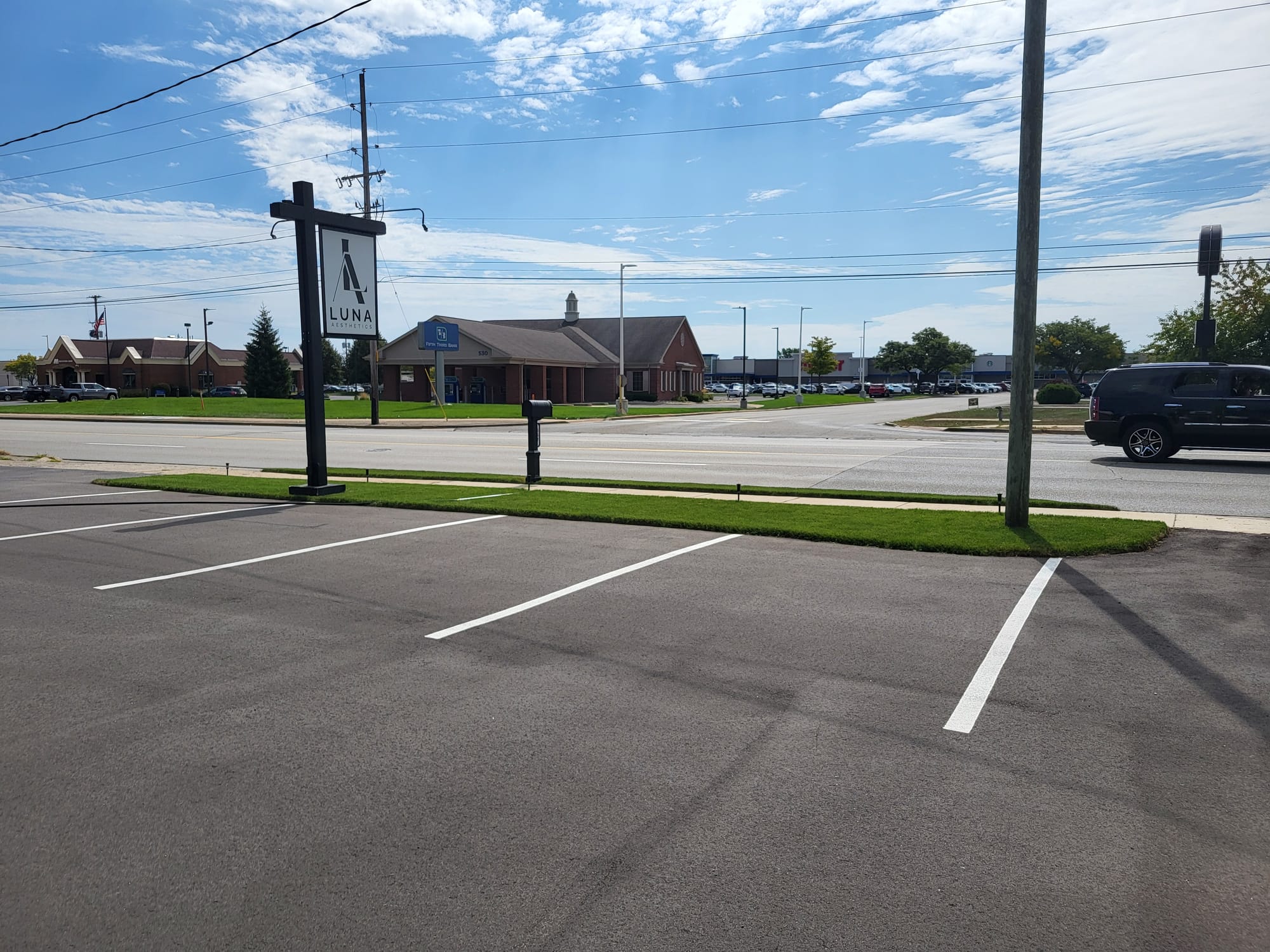
"Your timing was pathetic," he said in front of the standing-room-only group of well over 100 attendees.
He suggested the township break down the rate increase or find a way to spread it out to decrease the pain people feel over the sudden hike.
In all, 19 people spoke during public comment, focused on the water rate increase. Many of them echoed Polich and the Brummels with their concerns. Some suggested the township put off park improvements or take on debt to help ease the burden of water system improvements.
Some went as far as calling for a recall of trustees, a complicated special election process that is citizen-driven.
Later, Polich also criticized the township's communication.
"We didn't know anything radically was going to be changed," Polich said.
Not being aware of the pending increase gave them no chance to budget for it, he said.
"Those people that have a much higher water bill, the $1,000 ones are the ones I worry about the most," Polich said. "They're going to sell because they can't afford to live out here."
How we got here
Georgetown Township purchases most of its water from Ottawa County Public Utilities, which in turn purchases from the city of Wyoming. Wyoming runs a treatment plant that pulls water from Lake Michigan and feeds 10 municipalities that stretch across Ottawa and Kent counties.
Wyoming's system supplies water to each community in bulk, and they, in turn, supply the water to residents with local infrastructure. Each community then charges their residents, and the money tracks in reverse. The municipalities in Ottawa County pay Ottawa County, which in turn pays Wyoming.
This arrangement was put together decades ago and has benefited everyone through cost-sharing.
In 2023, the township board commissioned a Water and Sewer Fund Rate Study from Bakertilly Municipal Advisors. It recommended a roughly 37% increase to water rates, based largely on inflation and impending improvements to township-owned infrastructure, projected to cost around $25 million.
Wyoming's impending infrastructure improvements were discussed, but not included in the study.
The board ultimately voted to increase rates as recommended, with one member, Michael Bosch, dissenting.
In 2023, the township board commissioned a Water and Sewer Fund Rate Study from Bakertilly Municipal Advisors. [YouTube]
Wierenga supported his argument by referring to a graph that showed Georgetown water bills to be well below those of surrounding communities. This was the first increase to water rates in seven years, in part because ARPA funding was paying for several necessary lift station and monitoring improvements for the past several years.
Prices for water from Wyoming had been going up steadily by 3% every year.
Trustee Gary Veldink predicted steeper increases in the future because of Wyoming's improvement plans.
"They've been raising their prices, and we've absorbed it," Trustee John Schwalm said.
On May 12, Aaron Vis, director of Wyoming’s public works department, and Jamie Fleming, the city’s drinking water plant superintendent, attended the Georgetown Township board meeting, and shared hard numbers about the impending improvements.
Improvements sorely needed
Over the next 20 years, $606 million in improvements are necessary to keep the water system from failing.
"Again, round numbers, assume that 20ish percent of this cost are going to in some way shape or form be allocated to Georgetown," Vis said, and was met with a long silence from the board.
The data showed that on peak summer days, the system is already at 89% capacity. Without immediate action, people would start losing water service soon.
"Unfortunately, we're in a spot where all of the individual component capacities are really, really close," Vis said. "And what that means is we need to spend a lot of money in a short period of time to account for the growth in demand that's going to happen ..."
Fleming said Georgetown is one of the communities whose summer usage jumps significantly, by more than 5%.
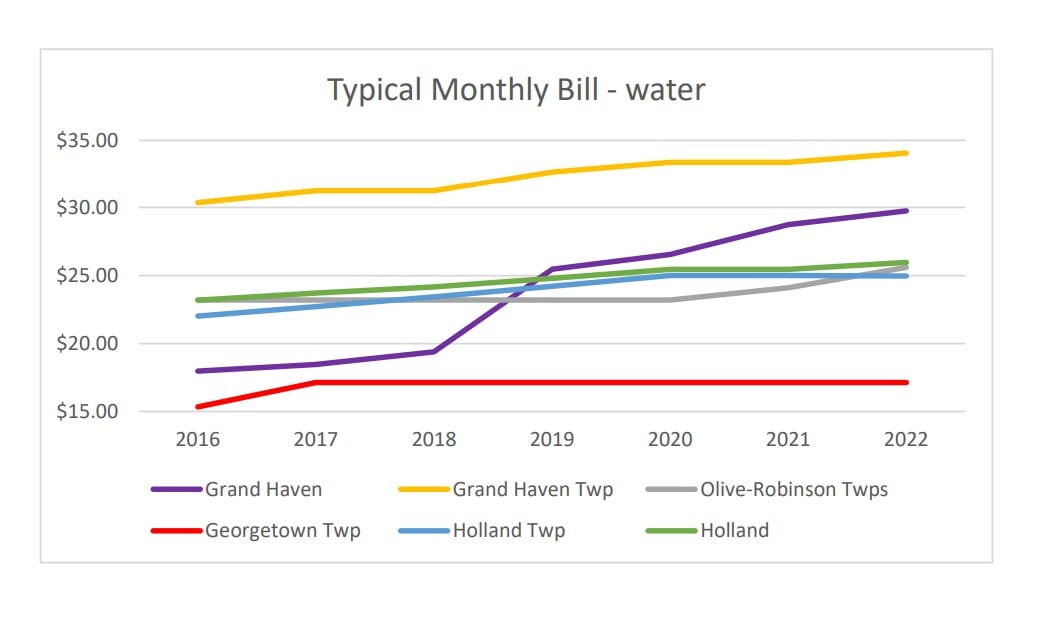
"What that tells us is often that's related to behavior related to irrigation needs," she said.
Fleming said mitigating those peak needs, with strategies like odd-even sprinkling and efficiency upgrades, might help push back the need for some of the improvements and lengthen the timeline to shoulder the improvement costs.
"I feel like we're up against the wall all of a sudden," Veldink said.
At the board’s June 9 meeting, trustees were presented with another rate study.
"The township is not immune to the inflation pressures we're seeing," said Andy Campbell from Bendzinski Municipal Finance Advisors.
Because of the high levels of inflation, cost estimates for work that has yet to be completed continues to rise, and the same work that was planned in 2023 will now cost about $7 million more. New connection fees, which helped to offset the rising costs in the past, were drying up as new home building in the township slowed.
Campbell said that Wyoming hadn't been making upgrades and passing on costs that they should have been in order to plan for the future.
"I would say it's 100% certain that Wyoming delayed maintenance and delayed capital improvements because you can see it now," Campbell said. "They're trying to catch up."
Campbell said Georgetown's previous water rate is "phenomenally low," and recommended increases of $16.30 to the quarterly ready-to-serve rate, and $1.75 to the per-1,000-gallon consumption charge. He also briefly presented options to cushion the rate hike with transfers of money from the general fund.
After discussion, the trustees voted unanimously to accept the recommendation to raise rates without any monetary cushion in the form of a bond or general fund transfer.
Township Superintendent Justin Stadt said delaying the improvement of the water system's capacity isn't really an option anymore.
"Our tanks on Baldwin are so rapidly dropping in the summertime, we're going to not be able to maintain water pressure in our homes, and our fire hydrants across the community," he said.
The only question left is how to pay for it.
Money matters
Trustees barely considered transferring money from the general fund or using a bond because historically, Georgetown hasn't ever done that. In fact, the water and sewer funds are kept completely separate from the rest of the money.
"People's tax dollars don't pay for water and sewer," Stadt said. "And the water/sewer account can't pay for pickleball. They're separate entities."
The township board has avoided using tax dollars to pay for water and sewer because they feel it's unfair to the residents who pay those taxes, but aren't connected to the water system. About a quarter of the township uses a private well instead of public water, Stadt said.
He said if the township borrows money on a bond, people not connected to water and sewer would be "subsidizing" the services through their taxes without receiving any benefit.
He also said there are significant advantages to avoiding debt. It allows them to collect interest from the bank on their surplus funds, rather than paying interest on the debt.
"We're actually able to keep bills lower by roughly 5% because we're making high interest," Stadt said.
Support Our Work
Ottawa News Network is a nonprofit news service dedicated to providing the residents of Ottawa County with trustworthy, community-driven news. ONN treats journalism as a public good — something that enriches lives and empowers Ottawa County’s 300,000-plus residents to stay engaged, make informed decisions, and strengthen local democracy. Please consider giving today.
He said these options to fill in the water and sewer gap aren't impossible, they're just a big change from how Georgetown has operated to this point, and weren't recommended by the financial advisors.
Stadt also said more increases are inevitable — it's just a matter of how big and how soon.
"The only option I have at this point is ask people to be conservative in how they use water," he said.
The faster peak demand increases in summer, the faster improvements will have to be made to their system.
"It's the summer peak that's killing us," Stadt said.
The faster improvements need to be made to meet peak demand, the bigger regular rate increases will need to be.
"And what I have to do is when I get a hike from Wyoming, then I have to pass it on, too," Stadt said.
Lessons learned
Stadt received two complaints that were relatively easy to address: sending out better notices and recommending better timing.
He thought putting a notice in the township's quarterly newsletter would be enough, but said in the future he would have a separate mailer sent out.
"In the future, I will send a letter 90 days out," he said.
He also said he'd propose better timing for increases.
"We're going to go for Jan. 1 if we have to increase water rates."
If residents want their meters checked professionally, the township can do it for $100. The public works department will come out and remove the meter and give it to the property owner to drive to the public works building themselves.
"We'll test it in front of them," Stadt said.
The water that runs through the meter at the testing station drains into a large tank, so the volume can be visually checked.
Frustrations, however, continue to simmer in the township.
"You can't just increase rates so aggressively like that," Katrina Brummel said.
Polich promised to be at the township's next meeting, which is scheduled for Sept. 22.
"Well, big deal if you're debt-free," Polich said. "You have now pissed off your whole base of consumers that are afraid to wash their cars because they're going to get over-billed."
— Joshua Vissers covers communities in eastern Ottawa County. Contact him at newsroom@ottawanewsnetwork.org.

